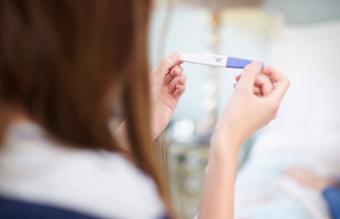
Oxygen is toxic to sperm and leads to decreased sperm function and death. This is in addition to the detrimental effects of air on sperm as the semen dries when the ejaculate is exposed to the environment. When does sperm die, and how fast does sperm die when exposed to oxygen and other factors? Get the facts here.
Effect of Oxygen on Sperm Survival
Sperm is a complex cell that is vulnerable to a number of conditions including exposure to oxygen. According to a 1998 article in an Oxford journal, Human Reproduction, it has been known since 1943 that when sperm is exposed to oxygen, the molecule interferes with several vital sperm functions. Researchers now know oxygen causes generation of free radicals in sperm, and these molecules are extremely damaging to sperm and its survival.
The Effects of Oxygen-Generated Free Radicals
Oxygen reacts with lipids in the sperm and mitochondrial cell membranes to produce oxygen-containing free radicals, also known as reactive oxygen species (ROS). When sperm is exposed to an excess of these species, the results are:
- Damage to and decreased motility of the sperm tail (flagellum)
- Damage to the sperm head and sperm DNA
- Decreased ability of the sperm to fertilize an egg
- Sperm death
ROS generation occurs immediately on exposure to oxygen and the toxic effect on sperm function and survival occurs rapidly.
Exposure of Sperm to Air
When sperm is exposed to air, it can be assumed the oxygen in the air will react with the sperm in a lethal manner and diminish or abolish the chance of fertilizing an egg. However, it is likely that even more lethal is the drying effect of air on semen and therefore the sperm. Semen dries quickly on exposure to air and within seconds to a few minutes, the sperm will be dead depending on how fast the semen dries.
Where Sperm Survive
Sperm cannot survive unless it is in semen, fluid in a woman's genital tract such as the fallopian tubes, or in culture medium during preparation for in vitro fertilization (IVF). As long as sperm are in a warm, moist environment such as a woman's uterus or vagina, it can survive for 3 to 5 days. When culture medium is involved, the sperm are vulnerable to reactive oxygen species, so antioxidants are added to the medium according to an article in Seminars in Endocrinology.
The Short Lifespan of Sperm
Do sperm die? While sperm thrive in warm, moist environments, it will only live in plain warm water for just a few minutes. If the water is very hot or if there's any type of chemicals or soapy bubbles added to the water, the sperm will barely survive a few seconds.
While sperm survive outside the body for a few minutes, the sperm's survival potential will not be impacted in any way by the type of surface it may be found on. For example, if the sperm ends up on skin, clothing or a type of hard surface, the sperm will die within minutes on their own or once the sperm is dry. Once the sperm is dry, the sperm is dead.
How Frozen Sperm Survive
On the other hand, it has been found that sperm can survive for several years or longer if they are frozen and maintained at a consistent temperature. The sperm is essentially in a state of suspended animation and stored at a sperm bank. Men may choose to freeze their sperm due to infertility treatments or situations that may affect their fertility such as a cancer diagnosis or other medical condition.
Sperm Is Susceptible
If you're wondering how does sperm die, exactly, there are a number of factors involved. Sperm is especially susceptible outside of the protective environment of semen and with exposure to oxygen or other environmental factors, it will die. It is packaged for the single goal of delivering its DNA to the egg and has no tools or chance to repair itself when exposed to oxygen or other detrimental factors.







